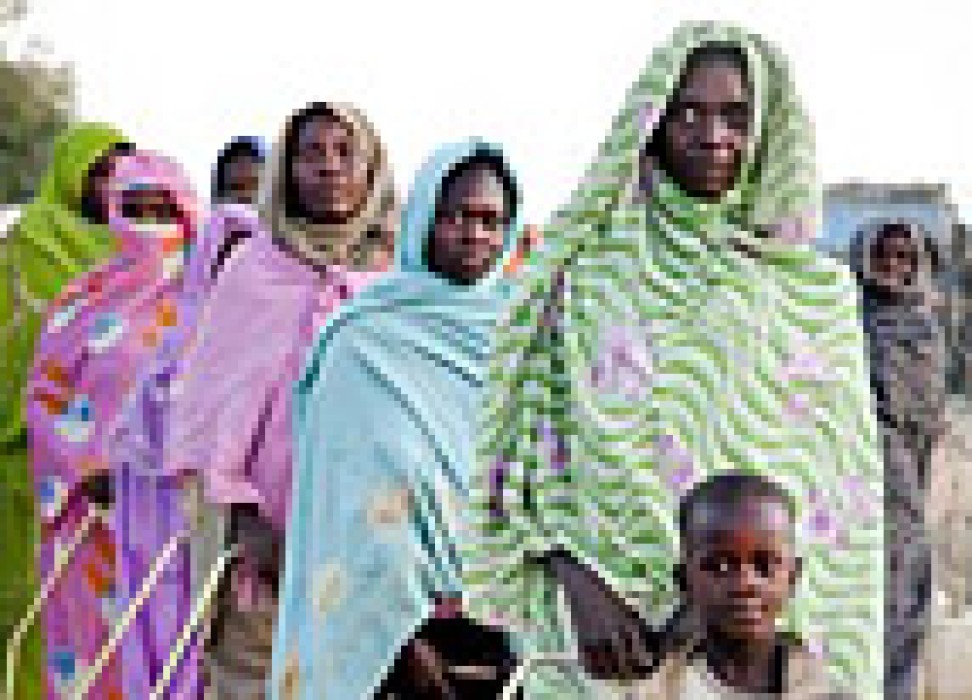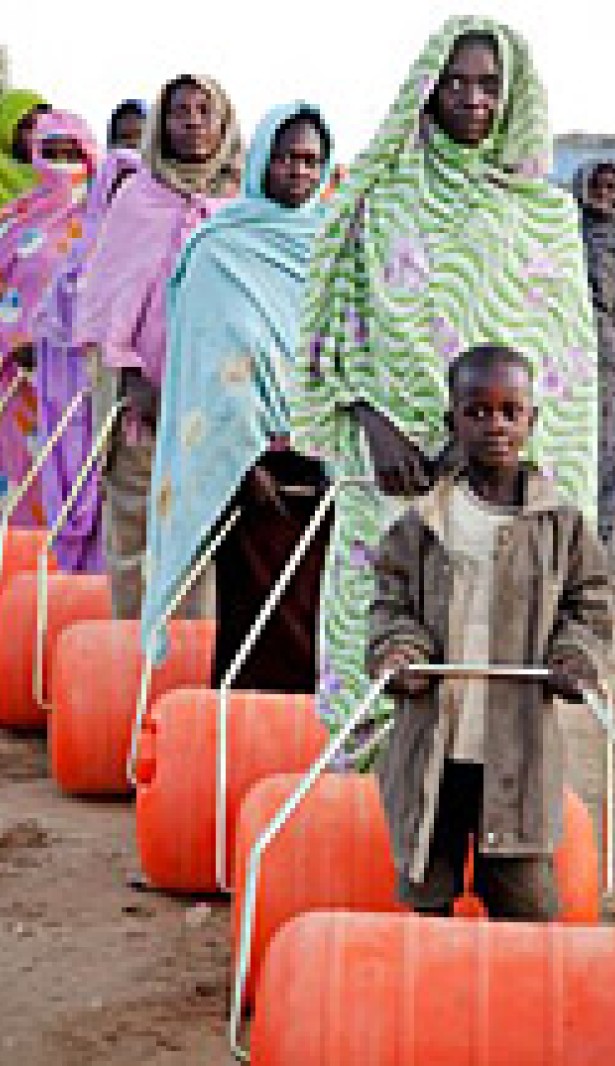Women: vital actors of change
09 March 2012

“Women are the first to suffer when crises hit,” said UN Human Rights chief Navi Pillay during a panel discussion on “Capitalizing on women’s potential in times of crisis.” “But they are also the ones who are most able to pull their families and communities together through the storm, with enormous energy, determination and pragmatism.” “Women have an unparalleled capacity to move forward.”
Pillay said the role of women during the protests of the Arab Spring “has highlighted that women are vital actors of change.”
However, she stressed that women are not adequately represented in transitional governments, and the formal systems in place to ensure their political participation have not yet lived-up to women’s aspiration. “Women are not fading into the background. They are still standing up and demanding to be heard: this takes extraordinary courage which too often goes unrecognized,” she said.
The panel discussion, which brought together some of the world’s leading human rights activists, politicians and thinkers, reflected on the impact of the global climate, food and financial crises on women and the role that women play in promoting peace and human rights.
Kim Phúc Phan Thi is often remembered as the young girl in a Pulitzer Prize winning photograph, running down a road, crying out in pain from the burns of her skin which was on fire with napalm during the Vietnam War, in 1972. She said that this photo “changed the way the world looked at the Vietnam War, and indeed all wars.” The photo emphasized the importance of telling the truth about the plight of victims of war.
A UNESCO Goodwill Ambassador and founder of the Kim Foundation, which helps child victims of war, Kim Phúc spoke about current financial crisis. “The global financial crisis is affecting the whole world,” she said. “When we see millions of people sliding into poverty, and social unrest increasing, we need to raise the alarm to safeguard human rights.”
Speaking about the climate crisis, Kim Naidoo, Executive Director of Greenpeace International, said that “women and children pay the biggest and most brutal price as a result of climate change.” “Climate change is a struggle and not an equal opportunity phenomenon in terms of gender,” he said.
Naidoo added that he believed that there is still a window of opportunity to avert the most catastrophic consequences of climate change. “Whatever solution we look for, we need to ensure that women’s aspirations, women’s perspectives are at the centre of the discussions.” “The UN Human Rights Council can help advance the voice and role of women in this moment of crisis,” he said. However, one of the lessons learnt from the environmental movement, which also applies to women's rights movement, is not to “mistake access with influence. Just because we get access to sit at the table, it does not mean we get heard and get to influence" he warned.
Stephen Lewis, co-founder and co-director of AIDS-Free World, said that “the single most important struggle on the planet is the struggle for gender equality. We cannot continue to marginalize 50 per cent of the world and expect to reach social justice.”
“Out of 186 Heads of State, only 16 are women. Women produce 66 per cent of the world’s work and 50 per cent of world’s food. However, they only receive 10 per cent of the overall income and own only 1 per cent of property,” said Lewis, stressing that imbalances “are profound.”
He also spoke about the importance of women’s equality in matters related to sex. “The sexual inequality is intense. If there were ways of enforcing through law, and through example, sexual autonomy, so that women could say no to sex or insist that the partner were a condom, we would move significant miles forward in the struggle against the HIV/AIDS pandemic,” he said.
Referring to the women who have participated in the protests in the Middle East and North Africa, Maryam Alkawaja, Head of Foreign Relations for the Bahrain Center for Human Rights, said that “women are capable of bringing equality to their societies.” However, we need to “give them the tools to create the situation they want to live in.” For Alkawaja women’s activism did not begin, and will not end, with the pro-democracy movements in the region. She said that “we will see women take a very strong stand and refuse to bow down or go back into the homes, and say that now that the revolution is over, the men can take over.”
The panel discussion, organized by the UN Human Rights office, was held in Geneva, Switzerland, on 8 March, on the occasion of International Women’s Rights Day 2012.
9 March 2012

VIEW THIS PAGE IN:
